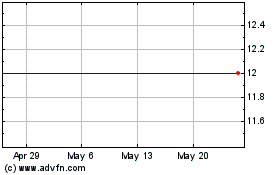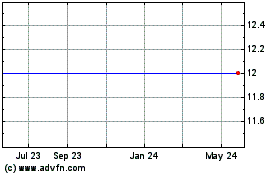FDA Accepts Supplemental New Drug Application Filing to Expand Namenda's(R) Indication to Include Treatment of Mild Alzheimer's
November 15 2004 - 8:10AM
PR Newswire (US)
FDA Accepts Supplemental New Drug Application Filing to Expand
Namenda's(R) Indication to Include Treatment of Mild Alzheimer's
Disease NEW YORK, Nov. 15 /PRNewswire-FirstCall/ -- Forest
Laboratories, Inc. (NYSE:FRX) announced today that the United
States Food and Drug Administration (FDA) has accepted the filing
of its supplemental New Drug Application (sNDA) to expand the
indication of Namenda(R) (memantine HCl) to include treatment of
mild Alzheimer's disease. Namenda is currently available for the
treatment of moderate and severe Alzheimer's patients, making it
the only approved treatment in the U.S. for patients beyond the
moderate stage of the disease. Under existing FDA procedures,
Forest should receive an initial action letter from the FDA by the
third quarter of 2005. (Logo:
http://www.newscom.com/cgi-bin/prnh/20001011/FORESTLOGO ) "Forest
is pleased the FDA has accepted our application," said Lawrence S.
Olanoff, M.D., Ph.D., Executive Vice President, Forest
Laboratories. "If the FDA approves the expansion of Namenda's
indication as a treatment for moderate to severe Alzheimer's to
include the mild stage, Namenda could be the first treatment in the
U.S. approved to treat all stages -- mild through severe -- of this
progressive disease." The sNDA filing includes data from three
studies: two double-blind, placebo-controlled, studies of Namenda
as monotherapy in mild to moderate Alzheimer's disease and one
double-blind, placebo-controlled study of Namenda administered to
patients already taking an acetylcholinesterase inhibitor. Data
from a U.S. clinical trial demonstrated that patients treated with
Namenda performed significantly better than patients who received
placebo on both primary outcome measures: the Alzheimer's Disease
Assessment Scale -- cognitive subscale (ADAS-cog) (p=0.003), a
measure of cognitive function, and the Clinician's Interview-Based
Impression of Change -- Plus version (CIBIC- Plus) (p=0.004), a
global measure of a patient's overall status. The six- month study
was conducted at 42 U.S. centers and included 403 patients with
mild to moderate Alzheimer's disease. Namenda was well tolerated,
with patients experiencing adverse events at overall rates that
were comparable to those on placebo. In a similar monotherapy study
conducted by H. Lundbeck in Europe, also included in the sNDA
filing, the difference in values for the primary endpoints, the
ADAS-cog and the CIBIC-Plus, was statistically significant in favor
of the Namenda treatment group versus the placebo group at multiple
time points. Although numerical improvement was observed at week
24, statistical significance was not reached. The European study
was conducted at 65 centers and included 470 patients with mild to
moderate Alzheimer's disease. As in the U.S. trial, adverse event
rates overall were similar for the two treatment groups. In the
third, double-blind, placebo-controlled study, Namenda was
administered to patients with mild to moderate Alzheimer's disease
currently also receiving acetylcholinesterase inhibitor therapy.
After 24 weeks of treatment, the Namenda/acetylcholinersterase
inhibitor group performed numerically better on measures of
cognitive (ADAS-cog) and global function (CIBIC-Plus) than the
placebo/acetylcholinersterase inhibitor group. However, statistical
significance was not reached at end point. The co-administration of
Namenda and acetylcholinesterase inhibitor therapy in mild to
moderate Alzheimer's disease was found to be well tolerated based
on this study. About Alzheimer's Disease Alzheimer's is a
progressive disease of the brain and the most common type of
dementia. Dementia is used to describe the progressive loss of
cognitive, intellectual, or functional abilities. Published reports
project that by 2050 more than 16 million people in the United
States will have Alzheimer's disease. Currently, all Alzheimer's
medications approved in the United States other than Namenda belong
to a class of agents called acetylcholinesterase inhibitors, which
are indicated for patients with mild to moderate symptoms of the
disease. About Namenda Namenda (memantine HCl) is the first in a
new class of medications with a unique mechanism of action that
focuses on the glutamate pathway, a new target for the treatment of
Alzheimer's disease. Indicated for the treatment of moderate to
severe Alzheimer's disease, Namenda was approved by the FDA
(October 2003) based on the results of three placebo-controlled
studies, which demonstrated Namenda's efficacy either as
monotherapy or when used in combination with another approved
Alzheimer's disease drug. Results from two studies in the U.S. --
both in moderate and severe Alzheimer's patients -- have been
published in The New England Journal of Medicine and The Journal of
the American Medical Association. Results from the European study
in nursing home patients were published in the International
Journal of Geriatric Psychiatry. Namenda (memantine HCl) is
contraindicated in patients with known hypersensitivity to
memantine HCl or any excipients used in the formulation. The most
common adverse events reported with Namenda vs placebo (greater
than or equal to 5% and higher than placebo) were dizziness,
confusion, headache, and constipation. In patients with severe
renal impairment the use of Namenda has not been systematically
evaluated and is not recommended. About Forest Laboratories and Its
Products Forest Laboratories' growing line of products includes:
Namenda(R) (memantine HCl), an N-methyl-D-aspartate (NMDA)-receptor
antagonist indicated for the treatment of moderate to severe
Alzheimer's disease; Lexapro(R) (escitalopram oxalate), an SSRI
antidepressant indicated for the initial and maintenance treatment
of major depressive disorder and for generalized anxiety disorder;
Celexa(R) (citalopram HBr), an antidepressant; Benicar(R) *
(olmesartan medoxomil), an angiotensin receptor blocker indicated
for the treatment of hypertension; Benicar HCT(TM) (olmesartan
medoxomil hydrochlorothiazide), an angiotensin receptor blocker and
diuretic combination product indicated for the second-line
treatment of hypertension; Campral(R) * (acamprosate calcium), a
glutamate receptor modulator, indicated for the maintenance of
abstinence from alcohol in patients with alcohol dependence who are
abstinent at treatment initiation in conjunction with psychosocial
support; Aerobid(R) (flunisolide), an inhaled steroid indicated for
the treatment of asthma; and Tiazac(R) (diltiazem HCl), a
once-daily diltiazem, indicated for the treatment of angina and
hypertension. Forest Laboratories markets Namenda(R) (memantine
HCl) in the United States under license from Merz Pharma GmbH &
Co. of Germany. Lundbeck, under license from Merz, markets
memantine as Ebixa(R)*, and Merz markets memantine as Axura(R)*,
each in a number of worldwide markets. *Benicar(R) is a registered
trademark of Sankyo Pharma, Inc., Campral(R) is a registered
trademark under license from Merck Sante s.a.s., subsidiary of
Merck KGaA, Darmstadt, Germany, Ebixa(R) is a registered trademark
of H. Lundbeck A/S and Axura(R) is a registered trademark of Merz
Pharma GmbH & Co. Except for the historical information
contained herein, this release contains "forward-looking
statements" within the meaning of the Private Securities Reform Act
of 1995. These statements are subject to risks and uncertainties
that affect our business, including risk factors listed from time
to time in the Company's SEC reports, including the Company's
Annual Report on Form 10-K for the fiscal year ended March 31, 2004
and on form 10-Q for the periods ended June 30, 2004 and September
30, 2004. Actual results may differ materially from those
projected.
http://www.newscom.com/cgi-bin/prnh/20001011/FORESTLOGODATASOURCE:
Forest Laboratories, Inc. CONTACT: Charles E. Triano, Vice
President - Investor Relations of Forest Laboratories, Inc.,
+1-212-224-6714, Web site: http://www.frx.com/
Copyright
Forest Road Acquisition (NYSE:FRX)
Historical Stock Chart
From Aug 2024 to Sep 2024

Forest Road Acquisition (NYSE:FRX)
Historical Stock Chart
From Sep 2023 to Sep 2024
